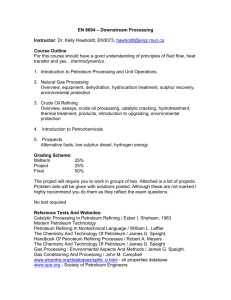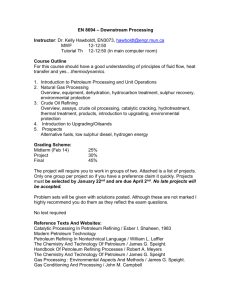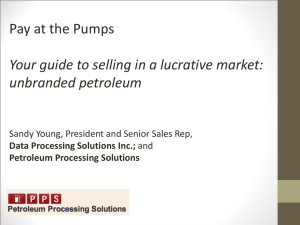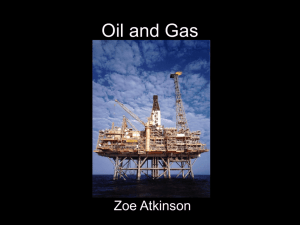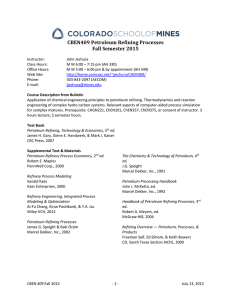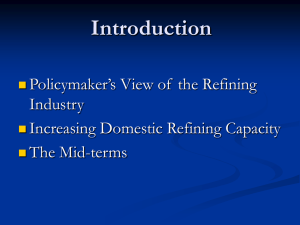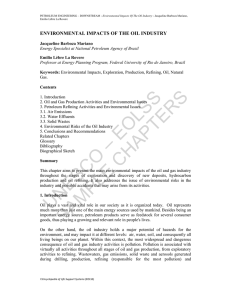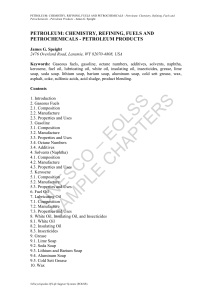Document 12820910
advertisement
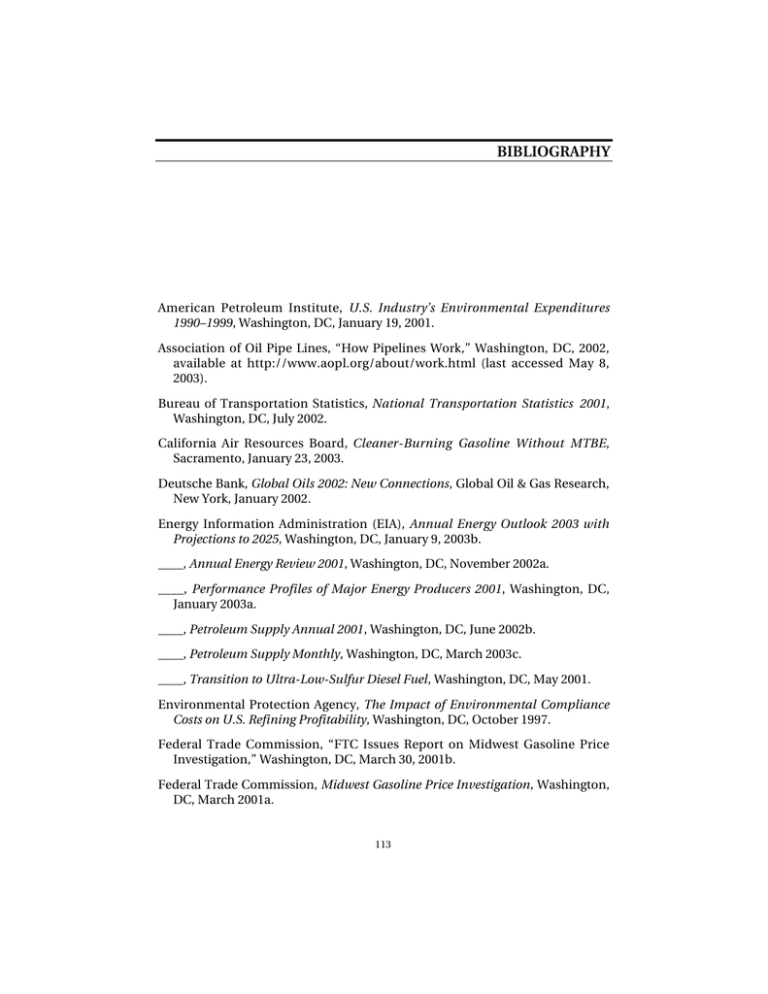
BIBLIOGRAPHY American Petroleum Institute, U.S. Industry’s Environmental Expenditures 1990–1999, Washington, DC, January 19, 2001. Association of Oil Pipe Lines, “How Pipelines Work,” Washington, DC, 2002, available at http://www.aopl.org/about/work.html (last accessed May 8, 2003). Bureau of Transportation Statistics, National Transportation Statistics 2001, Washington, DC, July 2002. California Air Resources Board, Cleaner-Burning Gasoline Without MTBE, Sacramento, January 23, 2003. Deutsche Bank, Global Oils 2002: New Connections, Global Oil & Gas Research, New York, January 2002. Energy Information Administration (EIA), Annual Energy Outlook 2003 with Projections to 2025, Washington, DC, January 9, 2003b. ____, Annual Energy Review 2001, Washington, DC, November 2002a. ____, Performance Profiles of Major Energy Producers 2001, Washington, DC, January 2003a. ____, Petroleum Supply Annual 2001, Washington, DC, June 2002b. ____, Petroleum Supply Monthly, Washington, DC, March 2003c. ____, Transition to Ultra-Low-Sulfur Diesel Fuel, Washington, DC, May 2001. Environmental Protection Agency, The Impact of Environmental Compliance Costs on U.S. Refining Profitability, Washington, DC, October 1997. Federal Trade Commission, “FTC Issues Report on Midwest Gasoline Price Investigation,” Washington, DC, March 30, 2001b. Federal Trade Commission, Midwest Gasoline Price Investigation, Washington, DC, March 2001a. 113 114 New Forces at Work in Refining Harwood, J., “Americans Distrust Institutions in Poll,” Wall Street Journal, June 13, 2002. Higgins, Terrence S., Director, Refining and Special Projects, Hart/IRI Fuels Information Services, personal communication, March 2003. Hoffmann, Peter, Tomorrow's Energy: Hydrogen, Fuel Cells, and the Prospects for a Cleaner Planet, Cambridge, MA, MIT Press, 2001. Industrial Information Resources, “ExxonMobil Follows Major California Refiners in Early MTBE Ban,” Houston, July 30, 2002. Martin, Tim, “Global Refining Addresses Increased Oil Demands, New Challenges,” Oil & Gas Journal, March 16, 1998. National Energy Policy Development Group, National Energy Policy, Washington, DC, May, 2001. National Petrochemical and Refiners Association, Fuels Facts, http://www.npra.org/news/facts/fuels.cfm, accessed February 13, 2003. National Petroleum Council, U.S. Petroleum Refining: Assuring Adequacy and Affordability of Cleaner Fuels, Washington, DC, 2000. National Petroleum Council, U.S. Petroleum Products Supply: Inventory Dynamics, Washington, DC, 1998. National Science Foundation, Survey of Industrial Research and Development, Arlington, Virginia, various years, available at http://caspar.nsf.gov/ nsf/srs/IndRD/start.htm (last accessed May 28, 2003). Office of Transportation Technologies, Future U.S. Highway Energy Use: A Fifty Year Perspective, draft, U.S. Department of Energy, Washington, DC, May 3, 2001. Peterson, D. J., Tom LaTourrette, and James T. Bartis, New Forces at Work in Mining: Industry Views of Critical Technologies, MR-1324-OSTP, RAND, Santa Monica, California, 2000. Popper, Steven W., Caroline S. Wagner, and Eric V. Larson, New Forces at Work: Industry Views Critical Technologies, MR-1008-OSTP, RAND, 1998. Resetar, Susan, Technology Forces at Work: Profiles of Environmental Research and Development at DuPont, Intel, Monsanto, and Xerox, MR-1068-OSTP, RAND, 1999. Rifkin, Jeremy, The Hydrogen Economy: The Creation of the World-Wide Energy Web and the Redistribution of Power on Earth, Los Angeles, J. P. Tarcher, 2002. Bibliography 115 Slaughter, Bob, “Comments of the National Petrochemical & Refiners Association on the Federal Trade Commission’s Second Public Conference on Refined Petroleum Products,” Washington, DC, April 18, 2002. Stillwater Associates, MTBE Phase Out in California, Draft Consultant’s Report to California Energy Commission, Sacramento, March 14, 2002.
